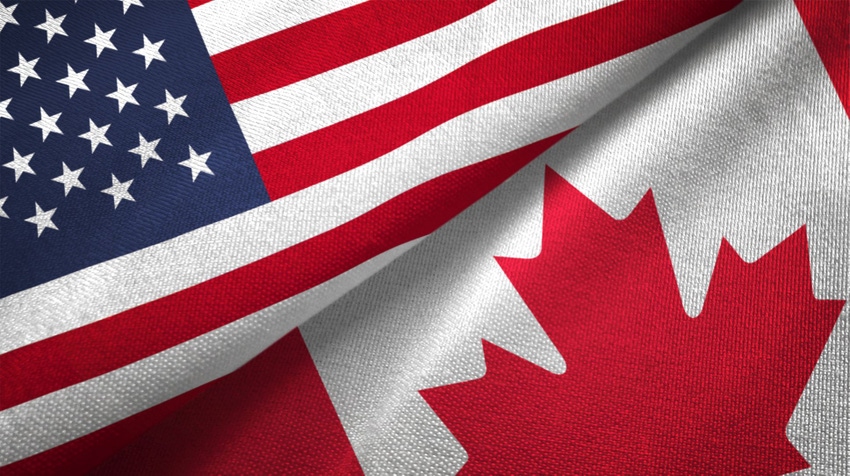Canadian pork producers respond to Product of USA rule
Concern rule may cause disruptions to the highly integrated North American meat and livestock supply chains.

Following this week's announcement by U.S. Agriculture Secretary Tom Vilsack that the finalized Product of USA rule now means all meat products sold with that label must be derived from animals raised, slaughtered, and processed in the U.S., the Canadian pork industry, as well as Canada's Minister of Agriculture and Agri-Food and Minister of Export Promotion, International Trade and Economic Development have expressed concern.
In a joint statement, Minister Lawrence MacAulay and Minister Mary Ng said they are reviewing the final rule carefully and will closely monitor its impacts and implementation, including U.S. international trade obligations.
"Canada remains concerned about any measures that may cause disruptions to the highly integrated North American meat and livestock supply chains.
We are disappointed that the final rule does not appear to take into account the concerns we have continually brought forward related to our unique and important trading relationship. Canada intends to raise this during the agriculture ministers trilateral meeting with United States and Mexico scheduled to take place in Colorado later this month."
The Canadian Pork Council said it was disappointed comments from the pork industry on both sides of the border were not taken into consideration in the finalized rule.
“The integration within our industry on both sides of the border has been a point of pride for us, and for our American counterparts at the National Pork Producers Council,” said CPC chair René Roy. “These changes, like the original mandatory policy successfully challenged at the World Trade Organization, will have an impact on trade in the integrated Canada/U.S. market, and we are again expressing our disappointment that the final rule did not consider the concerns expressed by Canada and by our American colleagues."
The original law, which sought to enforce mandatory country of origin labeling, was repealed by the United States Congress in 2015 following a 2014 ruling by the WTO that found the labelling regulations discriminated against Canada and Mexico. Canada and Mexico were granted the authority to impose retaliatory tariffs if the original country of origin labeling restrictions were not removed.
“Our comments, and the comments from our American counterparts, were aligned, because the Canadian and American pork industries serve as an example of international trade that benefits both sides," Roy said. "This regulation will force division into an aligned industry that will only increase costs for producers, for processors, and ultimately for consumers."
While the National Pork Producers Council did not issue a statement this week on the finalized rule, in comments issued to the USDA's Food Safety and Inspection Service in June 2023, NPPC addressed the impact on imports of live animals, potentially triggering U.S. trading partners such as Canada and Mexico to challenge the rule under WTO and the United States-Mexico-Canada Agreement.
"If the rule were challenged by Canada and/or Mexico and found to be inconsistent with U.S. obligations under the technical barrier provisions, there would be a risk of retaliation against U.S. pork (among other agricultural and non-agricultural products) unless the United States resolved the inconsistency. The loss of the Mexican and Canadian pork markets, which in 2022 was $2.9 billion of U.S. pork, would result in the loss of thousands of U.S. agricultural and non-farm jobs and the loss of more than a third of the U.S. pork industry’s exports."
Under the final rule, the “Product of USA” or “Made in the USA” label claim will continue to be voluntary. It will also remain eligible for generic label approval, meaning it would not need to be pre-approved by FSIS before it can be used on regulated product, but would require the establishment to maintain documentation on file to support the claim.
Even though it is a voluntary measure, Manitoba Pork is concerned that discrimination will occur when the new regulations are implemented.
“Three million pigs are exported to the United States from Manitoba every year, in addition to over $400 million worth of Manitoba pork products,” said Manitoba Pork chair Rick Préjet. “These changes, like the original mandatory policy successfully challenged at the World Trade Organization, will significantly impact trade in the integrated Canada/U.S. market, and we are extremely disappointed that the final rule did not consider the concerns expressed by Canada.”
About the Author(s)
You May Also Like





